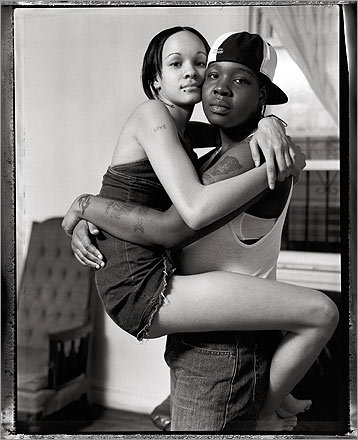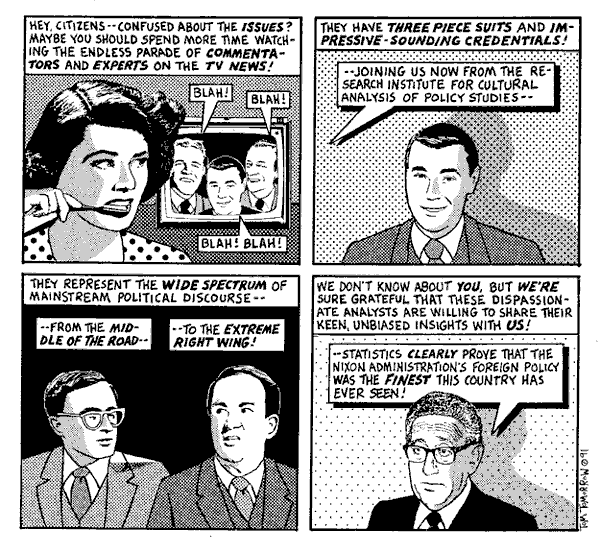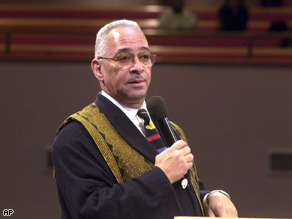Don Quixote
 That Ain't My American Dream -or- Why I dislike Ron Paul
That Ain't My American Dream -or- Why I dislike Ron Paul There's no need to even get started on the outspoken portion of his young, eager, conspiracy theorizing, black-helicopter sighting, self-congratulating, world of warcraft playing, blimp flying, message boarding, parannoying, minions of ignorant Paultardians (though it would be fun...ok, just one: paulville.org).
But in all seriousness there are very good reasons that don't rely on the easy joke and sadly equating Paul to a joke belittles the seriousness of the matter.
In a modern democratic society real justice is kept alive by the creative collaboration of two great but conflicting ideals: freedom and equality. These ideals are NOT the same. They are two opposite ideals which keep each other honest and between them make for justice.
The genius of American politics is found in the interplay of freedom and equality. One without the other fails. Ron Paul represents only one impulse: the freedom impulse which says that justice happens when people get the full rewards of their labors in which the government should not interfere with "every man his due." This is a noble idea but we should not fail to recognize the danger of its logical end: the law of human nature, the survival of the fittest.
On the other hand the impulse of equality says that justice has to do not only with just rewards but also just opportunity; equality which celebrates egalitarianism proposing a more just distribution of the nation's resources so that everybody gets a fairer share of the American dream; equality which says that a nation's righteousness has to do with how it treats its weaker and poorer citizens.
The cruel outcome of the impulse of freedom in a broken world unchecked by equality is a society where the strong get stronger and the weak get weaker, where the poor get poorer and the rich get religious. Libertarianism is the social Darwinism of political systems. In an ironic turn what begins in a noble idea of destructuring institutionalized injustice ends in increased injustice. Too much freedom ends in the loss of it; further and further disparity between the other and the majority.
Paul shouldn't call himself the constitutional candidate if he only runs on freedom. All men may be born equal but they are certainly not born into anything close to equality.
To hear Paul say in a letter to his supporters that, "We will not falter so long as there is one restriction on our persons, our property, our civil liberties," I can only respond with amazement that anyone can support such a candidate.
[Note: my input is in red]
Why Ron Paul Scares the GOP [and Me]
There used to be an organization for people who believed in a truly limited government — limited taxes, limited spending, limited interference in individual lives and limited intervention in foreign affairs. That organization was known as the Republican Party. But the only one of those beliefs that still motivates the G.O.P. establishment is limited taxes [for the wealthy]. In 2008, people who still hold all of them joined the Ron Paul Revolution.
But now the revolution is ebbing. Congressman Paul's new campaign finance report shows that he's raised nearly $35 million, including more than any other Republican candidate in the fourth quarter of 2007, and he's inspired remarkable passion among the kind of diehards who hold up campaign signs on highway overpasses and post irate comments on obscure blogs. But the presidency isn't decided on YouTube or Technorati [or the World of Warcraft]. Paul didn't win any Republican primaries, and he recently conceded that "victory in the conventional sense is not available."
Of course, nothing in Paul's world is ever done in the conventional sense, so he has refused to drop out of the race and endorse the presumptive G.O.P. nominee, Senator John McCain. Instead he argues that all Republicans should have "the right to vote for someone that stands for traditional Republican principles." And he's got a point.
The real significance of the Paul campaign is not the ubiquitous bumper stickers and lawn signs or the online fund-raising records ($6 million in one day, plus another $4 million, hilariously, on Guy Fawkes Day) but the mirror Paul held up to the modern Republican Party. When his fellow candidates denounced big government, Paul was there to remind them that President Bush and the G.O.P. Congress had shattered spending records and exploded the deficit. When they hailed freedom, Paul asked why they all supported the Patriot Act and other expansions of executive power. And when they called themselves conservatives, Paul asked what was so conservative about sending thousands of young Americans to try to transform the Middle East.
In some ways, Paul is a throwback to the frugal and isolationist wing of the old Republican Party, the fuddy-duddy GOP of Robert Taft and Calvin Coolidge. His fiscal policies evoke the idealistic Republican activists who seized control of Congress in 1994; he wants to abolish the IRS, the Departments of Homeland Security, Education and Energy, and most of the federal government. He refuses to vote for unbalanced budgets, and he has opposed spending taxpayer dollars on Congressional Medals of Honor, even for Rosa Parks or Pope John Paul II. Typically, his campaign has reported no debts, and still has more than $5 million in the bank. Meanwhile, Paul's foreign policies evoke candidate George W. Bush's call for a "humbler foreign policy" in 2000, although Paul goes much further; not only did he oppose U.S. involvement in Iraq, Kosovo and the war on drugs, he opposes U.S. involvement in the United Nations and NATO.
Under Bush's leadership, of course, the Republican Party has been anything but frugal and anything but isolationist. The congressional Republican revolutionaries seemed to lose their zeal for shrinking the federal government once they controlled it, which is one reason voters expelled them from power in 2006. And these days, it's usually Democrats who call for a humbler foreign policy. Paul's leave-us-alone libertarianism hasn't fit in with a party anxious to read our e-mail, improve our values, assert American power abroad and subsidize friendly industries at home. The party's recent mix of "national greatness" neoconservatives, evangelical theoconservatives and K Street careerists has had many goals, but leaving people alone hasn't been one of them. That's why Paul was the one getting booed at G.O.P. debates. And that's one reason why Paul's fervent followers were banned from the activist Republican website RedState.
In fairness, though, another reason RedState's directors got tired of the Paulistas was that so many of them seemed — what's the polite word? — nuts. Paul's supporters aren't all black-helicopter paranoiacs, but the black-helicopter paranoiacs sure do support Ron Paul. The controversy over a few racist articles in his old newsletters was probably overblown [as it is unknown how connected he was or if he approved them
Commentary on the Paul's newsletters:
http://www.tnr.com/politics/story.html?id=e2f15397-a3c7-4720-ac15-4532a7da84ca
Full newsletters can be found here:
http://www.tnr.com/politics/story.html?id=74978161-f730-43a2-91c3-de262573a129].
Still, even if you set aside Paul's kookier ideas, there just doesn't seem to be a road to the White House for any candidate who opposes the war in Iraq as well as higher taxes, the war on drugs as well as higher spending, restrictions on privacy as well as restrictions on guns. That's a real "freedom agenda," a true assault on big government, and while it clearly spoke to some angry dudes with high-speed web connections and time on their hands, [a lot of time] it's just as clearly not where America stands today. Paul didn't have a lot of company on the House floor when he rose recently to complain about government overreach in the investigation of the disgraced former New York governor Eliot Spitzer, who resigned after revelations that he had been a customer of a high-end prostitution ring.
But even if Paul's ideological purity is never going to get him to the White House, it does help illuminate the impurities — and sometimes the hypocrisies — of today's Republicans, just as Ralph Nader can do for the Democrats. The G.O.P. candidates all claimed to defend taxpayers, but Paul was the only one who refused to accept a taxpayer-funded pension or taxpayer-funded junkets. The candidates all talked about shrinking big government, but Paul was the only one who included the Pentagon and NSA wiretaps and petroleum subsidies in his definition. Bush's approval ratings have been abysmal for years, but Paul was the only Republican who really campaigned for change.
And in doing so Paul illustrated what was so striking about the Republican race. The leading candidates had all strayed from Bush and current orthodoxy in the past — Rudy Giuliani on abortion and gay rights, John McCain on tax cuts, torture, health care and campaign finance, Mitt Romney on just about everything. But while Paul was getting attacked every time he called for a new direction, the rest spent the primaries minimizing and renouncing their previous departures, implicitly promising four more years of Bushism. McCain is lucky he has some time to craft a new message, because that's not where America stands today, either.
Find this article at:
http://www.time.com/time/nation/article/0,8599,1724358,00.html
Labels: Conservatives, Paultards, Ron Paul


























